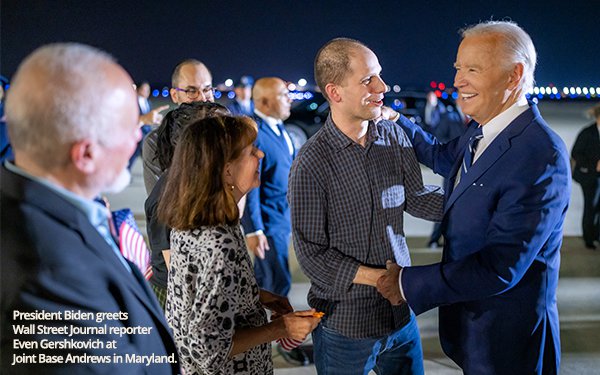
EMBARGO. The word is enough to turn
off any daily reporter when used in a subject line.
I often think, “this isn’t doing anything for me today,” and feel that Gmail should set up a
folder called Embargo, right next to Promotions. But I comply with them at the risk of losing access to the story source and my own reputation.
This issue has come
into sharp new focus: Bloomberg News has apologized for breaking the embargo about the hostage release last week, and Jennifer Jacobs, the reporter who allegedly was the lead writer on the story, has
left the company, according to The Washington Post.
Bloomberg’s story based on the pending announcement ran on Thursday morning before the American
hostages had been released, infuriating the White House. This could have jeopardized the whole arrangement, the Post says.
advertisement
advertisement
Jacobs has asserted
her innocence and adherence to journalistic norms. But it raises questions. For one, are embargoes legally binding?
Let’s say you break an embargo that has popped uninvited in your inbox
and that you did not agree to uphold. Are you culpable?
Most of us in the trade would say you shouldn’t do that. Yet it is far worse if the reporter accepted the
embargo in return for an advance peek — that’s a binding agreement that cannot be violated.
Of course, we might make an exception if the PR flack slipped
it to another publication as an exclusive and it broke while we were adhering to the embargo. (In rare extreme cases, publications have broken an embargo when they deemed it in the public
interest).
Most upfront embargo announcements contain little real information anyway. They might tell you that a company is hiring a new CEO, but they won’t say who it is.
Going up the journalistic ladder, regular White House reporters are often given copies of pending speeches or announcements so they can churn the stories out on deadline.
But this
becomes an even more serious ethical issue when people might be hurt by the breaking of the embargo — as in last week’s case. The hostages could have ended up not being
released.
It is fitting that Bloomberg apologized. It remains to be seen if the reporter is being scapegoated. Was this a clerical error or a simple misunderstanding
of the timing? Or was it a shameless attempt to get a scoop?
We don’t know the facts, but we will say this: Deliberately breaking an embargo of this import is worse
than unethical — it is dishonorable.